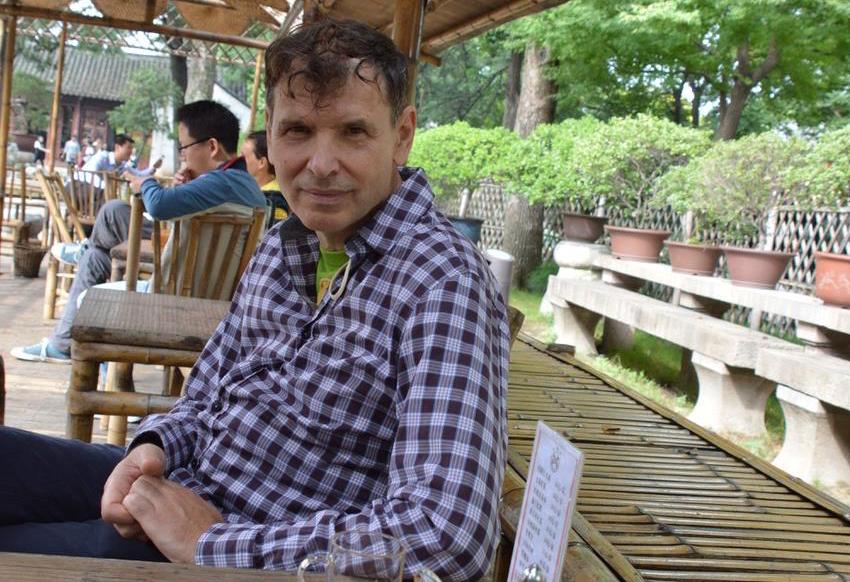
Alibaba said Wednesday that Hungarian-American computer scientist Mario Szegedy will join its DAMO Academy’s quantum computing lab.
The appointment is the first of a prominent computer scientist to DAMO, since Alibaba launched the global research institute in October last year. DAMO is a linchpin to Alibaba’s ongoing efforts to broaden its technological expertise beyond e-commerce.
A former researcher at Bell Labs and AT&T Research, Szegedy is a two-time recipient of the Godel Prize, winning the prestigious computer science award in 2001 and 2005. His works helped lay the foundation for research in computational complexity, streaming algorithms and quantum computing.
Based in Bellevue, Washington, the former Rutgers University professor will report to the director of Alibaba Cloud Quantum Laboratory (AQL), Yaoyun Shi. Shi’s remit is to assemble a team of world-class scientists and engineers for the company’s first research lab dedicated to realizing the revolutionary potential of quantum information technologies, such as exponentially larger processing capacity and faster machine learning. Within the growing team, Szegedy will lead research projects for quantum algorithms, especially their applications tied to machine learning and optimization problems, said Shi.
“Szegedy is an ingenious problem solver who craves to see his work having real-world impact,” said Shi, adding that more top scientists are expected to join AQL as Alibaba continues its talent hunt worldwide. AQL has openings in experimental and theoretical physics, computational sciences and software engineering.
“It is my dream to integrate all sorts of sciences and technologies together,” said Szegedy, explaining that this is what drives him to explore disciplines like artificial intelligence (AI), robotics and quantum computing. “Sciences are so intertwined—and technology develops so quickly—that we should be able to [better] exchange information and learn from each other.”
Szegedy said DAMO Academy aims to integrate science with industry, speeding up the information exchange between them. In that collaborative environment, any useful information scientists discover could be immediately applied to real-life problems, he said, “I am all for [that]. I think it’s very much in line with what I believe.”

Quantum computing tackles problems that are too complex and intractible in nature for classical computing systems to handle. Its development could potentially bring real-world breakthroughs in everything from AI to the discovery of new materials, drugs and chemical-reaction pathways.
Classical computers encode information in a binary system, in which each “bit” represents either a 1 or 0, like the on-off state of a transistor. But quantum computers instead work with quantum bits or “qubits,” which can be both 1 and 0 at the same time. That quality, researchers believe, can allow quantum computing to process a massive amount of information simultaneously and perform certain tasks exponentially faster than today’s computers.
“When we look at the terrestrial evolution, we see things have sequence. For instance, higher life requires oxygen—which was produced by plants in the first place—so, in the beginning, there were only plants and anaerobic beings. So, maybe we are just arriving at a turning point, when technology allows us to make this incredible leap of constructing something that nature has never had: a quantum computer,” said Szegedy.
Szegedy is the latest high-profile recruit in Alibaba’s hiring drive for top scientists, following recent additions acoustical engineer Jinwei Feng, quantum information scientist Yaoyun Shi, leading researcher at Alibaba A.I. Labs Gang Wang, and Xiaofeng Ren, former senior principal scientist at Amazon.
Meanwhile, Chinese talent has been gravitating towards careers back at home, as the fast-growing market offers plenty of opportunities for venture capital and cutting-edge research.
According to a 2017 survey conducted by think tank Center for China and Globalization and jobs site Zhaopin.com, the number of graduates returning from overseas – mainly from the U.S. – jumped to 432,500 in 2016, up 22 percent from 2013. Alibaba has been among Chinese tech corporations expanding its research labs across the world, to draw research and development talent based outside of China.
Alibaba launched DAMO Academy last year, together with a commitment to invest RMB 100 billion ($US15 billion) on future-oriented technologies over the next three years. DAMO laboratories will be opened in seven cities around the world: Beijing and Hangzhou in China; San Mateo and Bellevue in the U.S.; Moscow, Russia; Tel Aviv, Israel; and Singapore.




